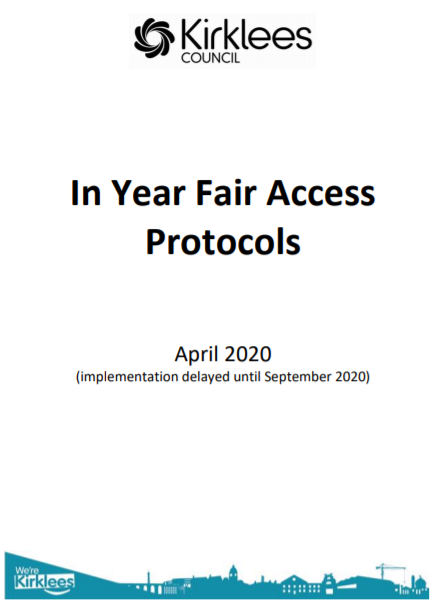The updated guidance on suspensions and exclusions comes into effect on 1 September 2023, and applies to maintained schools, academies, alternative provision academies and pupil referral units.
You don’t need to do anything right now. The new guidance only applies to suspensions and exclusions which take place on or after 1 September 2023. If you have ongoing cases, make sure you follow the policy that was in place when the suspension or exclusion process started.
Allow remote access to governing board meetings and independent review panels (IRPs)
Parents/carers can request the meeting be held remotely
Note: where we refer to parents/carers in this article, this is the case if the pupil is under 18; where the pupil is 18 or over, replace any mention of ‘parents/carers’ in this article with ‘the pupil’.
Encourage holding meetings in person, because this is still the default. But now parents/carers can request that a meeting be held via the use of remote access (carried out by electronic means, e.g. live video link).
As the headteacher, you must inform parents/carers of their right to make a request for a remote meeting when notifying them of the exclusion.
Where the suspension/exclusion process starts before September 1 2023, but continues into 2023/24: inform parents/carers of their new right to request a remote meeting on 1 September, or as soon as possible afterwards.
Meetings can also be remote in unforeseen or extraordinary circumstances
For example, school closure due to:
- Floods
- Fire
- Infectious illness / disease
Note that where these extraordinary circumstances don’t apply and parent/carers don’t request a remote meeting, then the meeting must be held in person.
Make sure certain conditions are met for remote meetings
Governing boards and arranging authorities should:
- Confirm that all the participants have access to the technology which will allow them to:
- Hear
- Speak
- See
- Be seen
- Make sure all the participants will be able participate fully
- Make sure that the remote meeting can be held fairly and transparently
If the governing board or arranging authority aren’t satisfied that a remote meeting can be held fairly and transparently, then they should consult with parents/carers to decide how a face-to-face meeting can be arranged.
If technical issues occur, rearrange to meet in person
Where you can’t resolve technical difficulties that prevent participants holding the meeting fairly or transparently, arrange a face-to-face meeting without delay.
Social workers and virtual school heads (VSHs) can join remotely
Even if the meeting is held in person, as long as they can contribute effectively.
Get more details on remote access to meetings in part 11, and annex A of the guidance linked above.
Understand tightened rules around cancelling suspensions/exclusions
The DfE has made the rules around cancelling suspensions/exclusions clearer, which should go further to help protect pupils from off-rolling.
Headteachers can now cancel exclusions that have not started yet, whereas previously they could only cancel suspensions/exclusions that had already begun. (This is all provided that the governing board hasn’t yet met to consider whether the pupil should be reinstated.)
Notify those involved of a cancelled suspension/exclusion
When an exclusion is cancelled, as headteacher, you must notify without delay:
- Parents/carers; or the pupil (if they’re 18 or older)
- The governing board
- The local authority (LA)
- The pupil’s social worker (where relevant)
- The VSH (where relevant)
The headteacher must provide all parties with the reason for cancellation.
Offer parents/carers the opportunity to meet with you as headteacher without delay, to discuss the circumstances that led to the cancellation.
Any days out of school will count as a suspension
Bear in mind that any days out of school, before a cancelled suspension/exclusion, will count towards the maximum of 45 school days a pupil can be suspended in any school year.
Note that a permanent exclusion can’t be cancelled if a pupil has already been suspended for more than 45 days in a school year.
Pupils should be reintegrated without delay
Offer the same support to pupils whose suspensions/exclusion has been cancelled, as you would to a pupil who has been suspended on their return to school.
Governing boards don’t need to meet or consider representations
In the case of a cancelled suspension/exclusion, the board’s duty to consider reinstatement stops so it doesn’t need to meet.
Read more about these changes in paragraphs 13 and 14 of the new guidance.
Clarity on timelines for the board to meet to consider representations
In the 2022 version of the guidance, it wasn’t clear what the governing board’s responsibility is when a pupil is suspended for 15.5 days in a term. This falls between the thresholds of ‘more than 15 days in a term’ and ‘more than 5 but less than 16 days in a term’, which require different actions.
The DfE has clarified this point in this update. Paragraph 101 of the guidance specifically states that when pupils have been excluded for any more than 15 days, including 15.5 days, in a term, the governing board must consider reinstatement within 15 days (footnote 58, page 36).
Pages 39 and 40 are still a little unclear on what to do if a pupil has been suspended for 15.5 days in a term. This is because they also make reference to suspensions that take “a pupil’s total number of days out of school to above 5 but less than 16”.
So if you’re looking at a suspension that will take the pupil’s total to 15.5 days in a term, we recommend you refer to paragraph 101 and footnote 58 on page 36, instead of the summary flowchart and questions on pages 39 and 40 of the guidance, to avoid confusion.
Other minor changes
- As headteacher, you should make sure they have a formal process for informing the VSH about an exclusion (paragraph 15)
- If pupils are 18 or above, they should be involved in the process, not their parents/carers (as mentioned above)
- When the governing board is considering the reinstatement of a pupil, the clerk should be present to make a record of the discussion, which should state clearly how decisions have been reached (paragraph 122)




